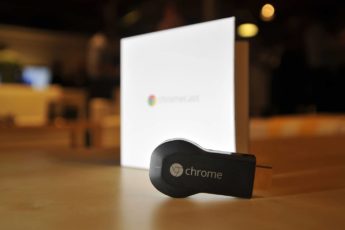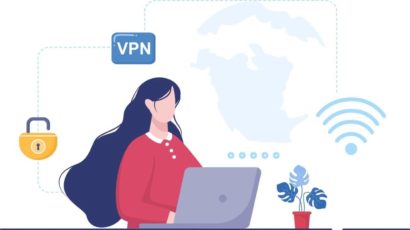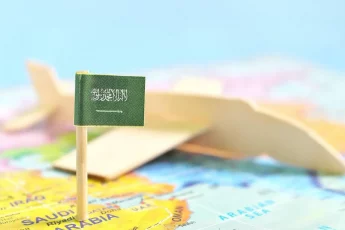In a world full of aggressive tracking, maintaining privacy is becoming difficult for all internet users. And if we talk about the journalists, things become even more worrisome.
On the one hand, we see the governments employing harsh measures against freedom of expression, internet freedom, and free journalism. On the other hand, we see journalists struggling to protect their security and privacy without compromising their journalism principles.
Given this conflicting situation, it’s inevitable for all journalists (including you, regardless of whether you hold a press card or not) to adopt everything that protects your privacy. Of course, we aren’t talking about your physical security here. Instead, we mean your online security.
While we can’t help you put on a body shield, we can certainly advise you on the online armor – the VPN.
So, in this guide, we have compiled a list of the best VPNs for journalists that warrant robust online protection.
A quick look at the best journalists VPNs
- NordVPN – Best overall
- Surfshark – Most affordable privacy solution
- ExpressVPN – Ensures robust security with speed
Why journalists need VPN today

Although, as a journalist, you must have heard (or read) about VPNs. You might also have an idea about how this tool helps users in maintaining their privacy and anonymity.
But, ever wondered why this tool is particularly important for yourself too?
Well, for a journalist, a VPN is a must-have since it not only provides privacy but also facilitates the overall job.
Wondering how? Let us explain.
As a journalist, you frequently need to access information resources from around the world. Often, you would have faced issues in accessing the original news resources merely because of content geo-restrictions.
Likewise, for investigative journalism, you might have risked your security a zillion times when communicating with different people. Often, you may have to communicate with the suspects as well, which is another security risk for you, not only from the perpetrators’ end but also from your own government.
Similarly, breaking news stories and controversies is exciting. But you also have to make sure that your sources remain safe and anonymous. However, this isn’t possible as your digital footprints can trace back to your sources too.
However, a VPN protects you from all these sufferings.
Since a VPN helps evade all content restrictions, you won’t have to face trouble in gathering information.
Similarly, due to the robust stealth measures that VPNs employ, you won’t face any IP banning problems while accessing geo-restricted content.
On top of everything, a VPN is a must-have for your online privacy, security, and anonymity. (Yes, you need all three of them.)
When you perform your routine chores with a VPN activated on your device, it will become nearly impossible to trace what you’re working on, whom you’re communicating with, and what channels you use for your communications. Hence, you can continue with your investigations and other journalistic activities without fearing being traced ever.
How to choose the best journalist VPN

Now that you know the necessity of a VPN for you as a journalist, you may wonder which VPN should you use.
You aren’t wrong in getting confused here because the market is full of excellent and poor VPNs today. All of them claim to provide superior services. You’ll even find many of them boasting a vast customer base as well. But, since your online privacy and security requirements are pretty precise, you cannot pick any VPN at random. In fact, doing so will continue to risk your privacy.
Therefore, what you need is a VPN that ensures the utmost privacy for journalists at all costs.
Below we list the main traits that make a typical journalist VPN. If you find an affordable VPN that satisfies all of these features, you can pick up that one for your own use.
Strong encryption
While almost every VPN app claims to offer encryption, you cannot trust a VPN merely seeing this word. Encryption is a very broad terminology that includes both cipherable and unbreakable encryption methods.
As a journalist, you need a tool to protect your online data in a way that it remains undecipherable even when leaked.
Hence, the best VPN for journalists is the one that offers the yet unbreakable AES-256-bit encryption. You shouldn’t compromise on anything less than this encryption military-grade standard.
Strict no-logs policy
“We keep no logs,” “we don’t know/track what you do,” you’ll frequently see VPNs making similar claims.
However, not all of them actually mean what they claim. You’ll get to know the details through their privacy policy. Or, you’ll be sure of no-logging by a VPN after reviewing how that VPN acted when given a subpoena.
Of course, the sole purpose of you using a VPN is that you don’t want your government or surveillance authorities to know what you’re doing. Nor do you want the criminals to get an idea about your investigations.
Therefore, what you need is a strict no-logs VPN. You can take a look at the best no-logs VPNs here if you want some quick names.
No data-capping
You can’t really limit your journalistic activities to a few hours. When you start scratching the surface of any issue, you need endless time, and thus, an endless resource to execute your activities. Here, a VPN that offers limited data is of no use.
So, before you subscribe to a VPN, make sure it does not cap your usage regardless of your subscription plan.
IP leak protection and kill switch
This is another essential factor that a VPN for journalists should necessarily possess. It should employ robust measures to prevent potential IP leaks during active connections and make sure that your real identity never gets exposed in case of a connection drop.
Servers spread globally
The more locations a VPN offers, the better. But, for a journalist, this is a requisite since you need to bypass all content restrictions.
While every VPN (as well as web proxy) offers this feature, not all of them are capable to satisfy your requirements. Many VPNs often end up offering fewer locations, potentially missing out on what you need.
Besides, the lack of servers is another issue that renders VPNs non-functional when the corresponding websites detect and block them.
That’s why the best VPN for a journalist is the one that has more servers as well as more locations. Such VPNs will let you break all content restrictions without fearing IP bans.
More simultaneous connections with greater platform compatibility
Just as you need more servers in a VPN, you should also be able to use that VPN across all your devices. It will simply be of no use if you can use your VPN on your PC, but not on your smartphones, or vice versa.
Definitely, as a journalist, you need to stay connected to the world on the go. Likewise, you might need to get online via multiple devices at the same time.
Therefore, to make sure that your online privacy remains intact, you should subscribe to a VPN that supports multiple platforms as well as multiple device connections at the same time.
Ability to work in repressive regions
Last, but the most important thing a VPN for journalists should offer is the ability to serve in repressive regions like China, Saudi Arabia, Turkey, and others.
It’s because these countries frequently ban VPNs. But, as a journalist, you might need to travel to these areas, and of course, you need even more security in such situations. Thus, your VPN should be there to protect your online existence regardless of where you are.
(Though, we also advise you to make sure that the region you’re traveling to doesn’t deem VPNs as illegal.)
10 best VPNs for journalists
After going through the necessary features you should look for in a VPN for journalists, you might find it hard to assess multiple VPNs.
Therefore, to save your time, below we list the best journalist VPN services. These VPNs won’t ease your journalistic tasks and facilitate you in your personal browsing activities like streaming.
1. NordVPN

With a huge network, server obfuscation feature, RAM-only servers, and strict no-logs policy, NordVPN never fails to protects journalists online.
Pros
- Very fast speeds
- Works great with TOR and P2P
- Offers additional features including double VPN, cyber threat protection, adblocker, and more
- Offers dedicated IP in 5 different locations
Cons
- The app interface is somewhat difficult
- Fewer countries offered despite more servers
NordVPN is better known for its fast-speed connectivity. But this VPN is also packed with numerous exciting features that aid in your work.
Just to list some of them, these include split tunneling, double VPN, tremendous support with Tor, obfuscated server technology to bypass VPN blocking, and dedicated IPs to let you browse safely without imparting any suspicious behavior.
Want to assess it as a typical VPN for journalists? Try NordVPN for 30-days without fear as they offer a risk-free money-back guarantee.
2. Surfshark

A cost-effective online protection tool for social activists and journalists that offers traffic obfuscation feature, strict no-logs policy, has RAM-only server network and provides multiple online locations.
Pros
- Extremely affordable pricing plans
- Offers protection against cyber threats, adblocker, double VPN, and other privacy tools for free
- Stealth servers evade VPN bans
- Superior Tor support
Cons
- Fewer countries offered as compared to ExpressVPN server pool
- Inconsistent speed with distant servers
While they have been a relatively newer addition in the industry, they have exhibited an outstanding growth rate.
Alongside all necessary features, this VPN also offers a bunch of additional privacy tools. These include thorough protection against malware and web trackers, ad blocking, Camouflage mode to evade VPN detection even by your ISP, and NoBorders Mode that makes it capable to work in regions like China.
Wondering how does it manage it all? Go ahead to test Surfshark yourself while leveraging its 30-day money-back guarantee.
3. ExpressVPN

Best VPN for journalists who want uninterrupted and secure online browsing 24/7/365. Thanks to its RAM-only servers and stealth technology that it never fails at providing anonymity.
Pros
- Highly responsive 24/7 customer support via chat
- Seamless unblocking of restricted content
- Easy to install and use
- Works incredibly well in repressive regions like China
Cons
- Doesn’t offer additional features like double VPN feature, malware protection, or adblocker
- Relatively costly than some other leading VPNs
With ExpressVPN, you literally have the whole world in your hands as it offered server locations from 94 countries across the globe. Thus, it sets you free from all restrictions barring you from accessing your desired content.
Moreover, with its stealth technology, fast speed connectivity, and superior platform compatibility, you can have ready access to any website or platform regardless of your device or existing location.
Plus, with its robust security measures, the VPN works great in China and similar regions.
Don’t believe our word? Feel free to test this VPN yourself by availing of their 30-day no-risk money-back guarantee.
4. Private Internet Access (PIA)

A secure VPN that has a demonstrated history of keeping no logs despite US-based jurisdiction. It works great for journalists to unblock content anonymously anywhere.
Pros
- Offers WireGuard protocol
- Manual configuration for encryption and protocols
- Offers additional features such as double VPN, split-tunneling, adblocker, and email breach alert
- Affordable pricing plans
Cons
- Inconsistent speed makes it unsuitable for gaming, torrenting, and Tor
- Doesn’t work in China
- Lacks dedicated apps for gaming consoles
Private Internet Access (PIA) VPN isn’t a new name for the customers. They have enjoyed popularity for a long time merely for the top-notch services they offer.
The main reason for this popularity is their strict no-logs policy despite being based in the United States – a Five Eyes country.
Besides, from wide simultaneous device support to multi-platform compatibility and privacy, this VPN has all that you need to stay under the radar without compromising your work quality.
Although, PIA may not be the best journalists VPN of today since it faces trouble working in repressive regions. But if your reporting activities do not require you to travel to such areas, then PIA is a cost-effective substitute for more pricey VPNs.
5. PrivateVPN

A modest VPN with small server network. Yet, it’s strict no-logs policy supports journalists to access their desired content anywhere, communicate anonymously, and stay safe online.
Pros
- Fast speed connectivity
- Compatible with most platforms
- Customer support via TeamViewer
- 7-day free trial
Cons
- Fewer servers
- Lacks additional security features as offered by other VPNs
- Kill switch limited to Windows only
Continuing with the list of best VPN for journalists, we now come to PrivateVPN.
As the name implies, PrivateVPN takes care of your online privacy by providing robust data encryption. Although the service is based in Sweden – a part of the 14-Eyes alliance, PrivateVPN still ensures a no-logs policy, as mentioned in their Privacy Policy.
As for features, it’s a modest VPN supporting major devices, sufficient simultaneous connections, and impressive features.
While its server network isn’t huge, given its affordable fee, the VPN offers sufficient server locations to the users.
Also, they offer a 30-day money-back guarantee.
6. IPVanish

This no-logs VPN is a great option for journalists to access their desired websites on any device as it also supports unlimited simultaneous connections.
Pros
- Good speeds
- Offers SugarSync data storage as well
- Supports P2P and torrenting
- Affordable pricing plans
Cons
- Kill switch limited to Mac, Windows, and Android only
- Fewer servers
IPVanish is yet another VPN serving users for a long time. The biggest plus with IPVanish, like Surfshark, is that it doesn’t cap simultaneous active connections. It means that right after subscribing to it, you’re all set to start an anonymous online journey by protecting all your devices with this VPN
Moreover, another praiseworthy feature of IPVanish is its strict zero-logs policy, despite the VPN being based in the United States.
IPVanish also boasts diversified platform support, including Fire devices. This further helps you in enjoying the safe streaming of your favorite documentaries and other media.
You can freely test this VPN to see whether it qualifies as a VPN for journalists without fearing your money as IPVanish offers a 30-day money-back guarantee.
7. VyprVPN

Offering a huge number of locations, proprietary Chameleon technology for stealth browsing, and robust no-logs policy, it defiantly is one of the best journalists VPN.
Pros
- Supports WireGuard
- Affordable pricing plans for longer terms
- Works well with streaming platforms
- Satisfactory speeds
Cons
- Doesn’t support anonymous payments
- Kill switch limited to Windows, Mac, and Android only
Another good VPN that you can choose to protect your investigative jobs is VyprVPN. Whether it’s about achieving online anonymity or about breaking the barriers to content accessibility, VyprVPN can handle it all.
Based in Switzerland, this VPN came into being in response to NSA’s surveillance activities. Hence, you can trust their no-logs policy for your data without fearing your government.
A useful feature of VyprVPN is its use of clustered server technology. It saves the users from the hassle of choosing the right server. All you need is to select a location simply, and the VPN will automatically connect you to the right server.
Also, like all other high-end VPNs, VyprVPN offers a 30-day money-back guarantee. Thus, you can enjoy the liberty to assess its performance as a VPN for journalists.
8. IvacyVPN

Another service that respects user’s privacy and practices a no-logs policy, hence becoming a recommended VPN for journalists.
Pros
- Offers dedicated IP to users who require it
- Supports split tunneling
- Offers malware and DDoS protection
- Affordable pricing plans
Cons
- macOS and iOS apps lack kill switch feature
- Doesn’t support TOR
- Complicated money-back guarantee
Based in Singapore, IvacyVPN has no obligations for data retention. Nor is it obliged to cooperate with the 5-Eyes or 14-Eyes alliance.
Though, some reports suggest Singapore frequently cooperates with Five-Eyes. Yet, since IvacyVPN has a strict no-logs policy, users don’t have to worry about their data being shared with governments.
As for performance, IvacyVPN delivers impressive speeds across different servers; though, you may not find it comparable with ExpressVPN, Surfshark, or NordVPN.
Another impressive thing with IvacyVPN is its prompt customer support. So, you can proceed to test this service while being confident to get prompt help should you face any trouble during setup.
9. ProtonVPN

Another strong VPN for journalists that guards its servers like a military, despite keeping no user-logs. It’s the best tool for anyone wanting to investigate anonymously.
Pros
- Open-source and audited apps ensure no bugs
- Fast speed
- Also offers a free subscription plan with limited features
- Premium plans offer additional security features such as adblocker and Secure Core
Cons
- No live customer support
- Fewer server locations
Based in Switzerland, ProtonVPN is another great for journalists looking for quick privacy solutions. The service has no obligations regarding data retention due to its neutral jurisdiction. Hence, they ensure thorough privacy to the users.
Besides, it keeps your online armor intact by offering perfect forward secrecy. In this way, you don’t have to fear any data breach, even if someone succeeds in intercepting your VPN traffic.
Although, doing so is just not possible since ProtonVPN offers military-grade AES-256-bit encryption.
What’s great with ProtonVPN is its support for a free version on a single device. If you are satisfied with its services, you can upgrade your subscription to a paid one to enjoy more benefits.
10. Hide.Me

A free journalist VPN that supports multiple device connections, offers tens of global locations, and practices a strict no-logs policy.
Pros
- Offers WireGuard support
- Also offers a free version with limited features
- Offers enhanced security features such as split tunneling and app whitelisting
- Even supports anonymous payments via various cryptocurrencies
Cons
- Limited data for free users
- Fewer server locations
The last great service that we can recommend as a VPN for journalists is Hide.Me.
Based in Malaysia, the VPN resides far away from the 5, 9, and 14-Eyes alliance, thus freeing you from any surveillance risks.
This allows them to set up a dedicated no-logs policy that even applies to the free users. Though, you’ll only get 1 device connection and 5 locations with a 10GB data limit with the free version.
Yet, if you find the free version good, you can always upgrade to the paid version to enjoy more benefits. Besides, since Hide.Me offers a no-questions-asked 30-day money-back guarantee; you can even begin with testing the paid versions right away.
Wrapping up
We now end our review of the services offering the best VPN for journalists.
As you can see, the choices are many, so you should rush toward getting a smart VPN that protects your privacy. Particularly, for pro journalists out there who remain involved in critical investigations, having such a VPN is just as necessary as you need food to live.
But let us highlight that your armor won’t be complete with a VPN only. You should also keep security in mind while using other apps like your browsers and emails. Perhaps, you should substitute your currently used apps with secure messaging apps, secure browsers, and secure email services. Also, you should use private search engines instead of Google or Bing to keep your searches private to you only.
Employing all these practices, together with a robust VPN, will surely keep you safe online.
FAQs
Definitely yes. In fact, as a journalist, you inevitably need a VPN to protect your privacy from everyone online, including the cybercriminals, surveillance authorities, web trackers, and your fellow journos chasing your activities. However, make sure that the jurisdiction you’re present in doesn’t consider VPNs illegal.
As far as you choose the right VPN that respects users’ privacy, VPNs are safe to use. Instead, using VPNs warrants the basic online safety of your data as compared to the use of proxies or no VPNs at all. With a privacy-focused VPN, you can rest assured that anyone can neither track you nor log your data.






